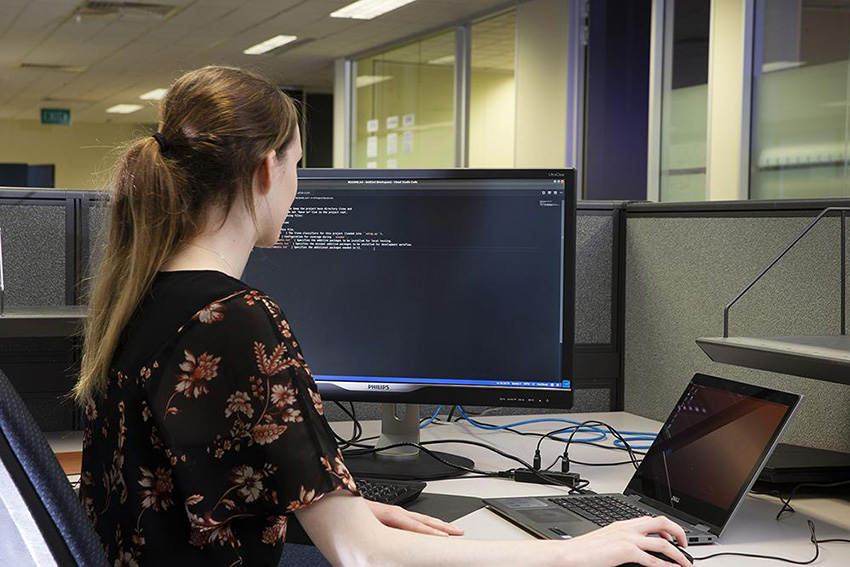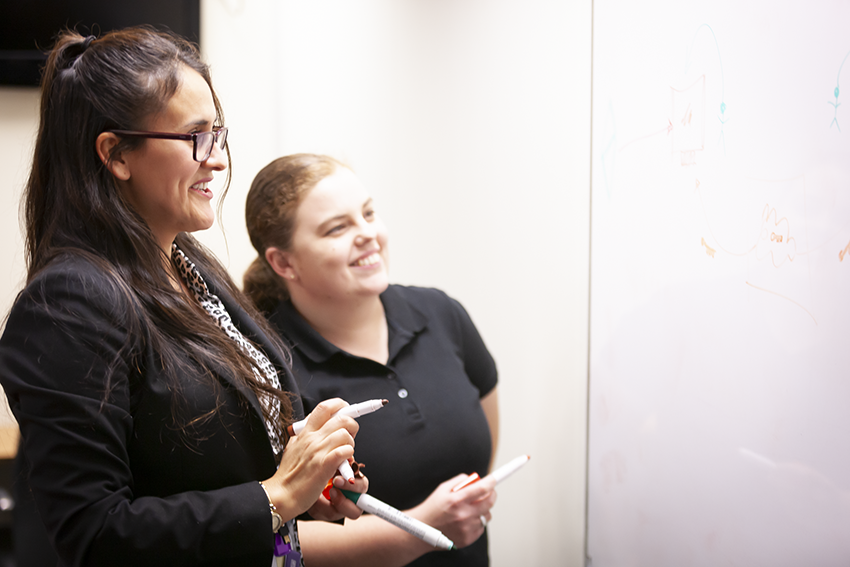Share this article on:
Powered by MOMENTUMMEDIA
Powered by MOMENTUMMEDIA
Breaking news and updates daily.
This week, Penten explores the various ways in which Australia’s cyber security sector is working to attract and retain a more diverse workforce.

Australia’s male-dominated cyber security sector is struggling to attract and retain the diverse workforce needed to counter escalating cyber threats. While the problem is not new – women have been discouraged from IT careers since the dawn of the PC – the lack of diversity in cyber is today widely recognised as an issue of national security.
Developing a more diverse workforce
Boosting opportunities for career progression across genders will be critical to growing diversity – and workforce size – in cyber security.
Areas for improvement include the formation of diverse but clear career paths, establishing more accessible formal and informal networking and mentoring opportunities. Recruitment should also focus on potential rather than on technical skills or experience.
Australia has witnessed recent growth in the availability and range of its cyber security training, as well as in the number of programs in place to attract and develop more cyber security professionals. However, the sector is not yet on track to deliver its required 33,500-strong workforce required by 2024 (as forecast by AustCyber). This challenge has been exacerbated by the COVID-19 pandemic’s impacts on the supply of skilled overseas professionals.
Graduates of Australia’s increasingly diverse cyber education pipeline will expect an organisational culture that supports – and even celebrates – this diversity and inclusion.
In a practical sense, inclusion requires the active and thoughtful removal of barriers and unintended consequences associated with traditional workforce policies, procedures and structures. Inclusivity means developing more flexible and inclusive policies and procedures to support a more diverse workforce. That may mean modified working hours and working days, working from alternate locations (and home), reduced working hours, job-sharing, access to paid parental leave and carer’s leave.
Australia’s cyber security employers must build awareness and appreciation to ensure everyone has a positive experience in the workplace. Staff therefore need to understand what is meant by diversity and inclusion, including what this looks like in practice. Coupled with this is the requirement to address gender-based workplace discrimination, harassment and bullying. This includes the education of staff around acceptable and unacceptable behaviours, complemented by effective reporting mechanisms for staff. And in order to be constructive, these reporting processes must be accessible and trusted to support complainants.
Encouraging and supporting more diverse candidates to pursue careers in cyber security will boost the available pool of talent. And greater diversity will improve the quality of our profession, expand the variety of our ideas and expand our collective ability to solve increasingly complex cyber problems.

Initiatives to promote diversity in cyber
Australia’s cyber security sector already has a number of initiatives aimed at attracting and promoting diversity in cyber, including:
And I note that these are just some examples of the sector’s growing efforts towards greater workforce diversity.
Penten: Striving for true diversity
At the organisational level, businesses like Penten are working to break down gender barriers by promoting more equitable work practices and offering a range of flexible leave options for all staff.
Penten’s workforce is currently 25 per cent women – twice the average for the Asia-Pacific cybersecurity sector. Recognising the value of, and need for diversity in its workforce, Penten is now striving to double the number of women in the company and ultimately to grow its gender diversity.
To better support a diverse workforce, in 2019 the company introduced 26 weeks of paid parental leave for new parents regardless of gender, as well as unlimited paid sick, carer’s, ADF reservist and domestic violence leave.

Bridging the gender gap at senior levels
While much remains to be done to improve gender diversity in Australia’s cyber workforce, women are – at least at more senior levels – increasingly visible and influential in our cyber security sector.
The government’s leading cyber security organisation, the Australian Signals Directorate set a powerful example by achieving gender parity in its Senior Executive Service in 2018. The following year, the government appointed ASD’s first female Director General, Rachel Noble. ASD’s Australian Cyber Security Centre is today also led by a woman, Abigail Bradshaw.
The appointment of women at the highest levels of Australia’s cyber security sector also underscores the value of non-tech skills – including leadership – in cyber security. A balanced and effective industry demands skills and qualifications from a wide range of disciplines, not just ICT and STEM.
We need adept strategic thinkers, business managers, compliance and risk specialists, operations managers, human resource professionals, business intelligence analysts, communications professionals and lawyers. We need accountants, finance specialists, logistics managers and chief executives. We simply need good people.
The Australian cyber sector will know that it is making progress once it can measure its performance in areas like gender diversity performance and wage parity. Greater transparency will lead to greater accountability, and real progress in advancing the cause of women in the growing cyber security industry.
Author: Jane Landon, Applied AI Operations, Penten
Penten is an Australian, cyber company focused on innovation in secure mobility, applied artificial intelligence (AI) and tactical communications security.
In 2019 and 2020 Penten was awarded Cyber Business of the Year at the Australian Defence Industry Awards.
For more information visit www.penten.com
Be the first to hear the latest developments in the cyber industry.